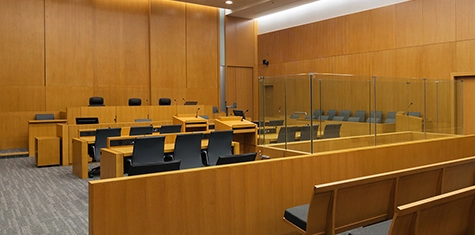The Minnesota State Legislature, in its 2024 legislative session, directed the Minnesota Pollution Control Agency (MPCA) to develop recommendations regarding products containing lead, cadmium, and perfluoroalkyl and polyfluoroalkyl substances (PFAS). 2024 Session Law, Chapter 16, Article 2, Section 31. Specifically, the Legislature asked the MPCA to provide it with a report by January 31, 2025, on the following four topics:
(1) the use of intentionally added (PFAS) in electronic or other internal components of upholstered furniture subject to the 2025 prohibition under Minnesota Statutes, section 116.943;
(2) the use of lead and cadmium in internal electronic components of key fobs in the prohibition under Minnesota Statutes, section 325E.3892;
(3) the use of lead in pens or mechanical pencils included in the prohibition under Minnesota Statutes, section 325E.3892; and
(4) the use of intentionally added PFAS in firefighting foam used in fire suppression systems installed in airport hangers in the prohibitions under Minnesota Statutes, section 325F.072.
The 2024 legislation also required the MPCA to include recommendations in its report as to whether the Legislature should extend existing bans against the use of chemicals included in the above topics.
The MPCA has filed and published its report (“Recommendations for products containing lead, cadmium, and PFAS”). The following are brief summaries of the MPCA’s recommendations in each of the four covered topic areas:
The Ban on Intentionally Added PFAS in Electronic or Other Internal Components in 11 Product Categories Should Be Extended to 2032
In 2023, the Legislature enacted a ban — effective January 1, 2025 — on the sale or distribution within Minnesota of products with intentionally added PFAS in 11 product categories. All remaining products with intentionally added PFAS will be banned within Minnesota by January 1, 2032, unless the PFAS in these later products is a “currently unavoidable use.”
The 2024 legislation only asked the MPCA for a recommendation regarding “electronic or other internal components” in one specific product category among those subject to the January 1, 2025, ban, i.e., upholstered furniture. The MPCA nevertheless recommended the Legislature grant an exemption (until 2032) for the use of intentionally added PFAS in electronic or other internal components in all 11 product categories that were subject to the 2025 prohibition. The MPCA’s broadened recommendation was based on the fact that PFAS-free alternatives in electronics applications are limited across all 11 product categories, not just upholstered furniture. Among the many reasons for the limited number of alternatives is “supplier perception of being outside the scope of PFAS regulations, information gaps, and supply chain complexity.” The MPCA found PFAS-free alternatives to the internal components of these same products to be similarly limited.
The MPCA further noted the current statute exempted “electronic products” from the ban on “juvenile products” (another of the 11 banned product categories) and that California and Colorado delayed bans against electronics and other internal components in statutes similar to Minnesota’s because consumers are unlikely to come into direct contact with them and out of recognition of the challenges manufacturers face in finding acceptable alternative components.
For these reasons, the MPCA recommended the Legislature consider an exemption to electronics and internal components that applies across all 11 of the banned product categories to allow manufacturers within these categories the same amount of time “to find, develop, test, and implement PFAS-free safer alternatives” as other manufacturers subject to the 2032 ban will have to do so.
Airport Hangars Should Be Given Until 2028 To Transition Away From PFAS-Containing Foam
Minnesota Statutes section 325F.072, subdivision 3(a), prohibits the manufacture or knowing sale, offering for sale, distribution, or distribution for sale of class B firefighting foam within Minnesota, effective January 1, 2024. Subdivision 3(c) exempts airports from these prohibitions; however, until the state fire marshal determines (using specific criteria) that an acceptable alternative to the foam exists, the statute does not include a termination point for this exemption.
During its research in support of its report, the MPCA identified only eight hangars in Minnesota with fixed firefighting systems that use PFAS-containing firefighting foam, all of them owned and operated by Delta Air Lines (Delta) and located at the Minneapolis-St. Paul International Airport. The MPCA also identified an October 2024 estimate from Delta that, given logistical and other challenges, it would take at least three years to replace its existing PFAS-based fixed firefighting systems with ones that can accommodate non-PFAS solutions.
Based on this, the MPCA recommended the Legislature adopt a deadline of January 1, 2028, by which all hangars in Minnesota complete this transition. MPCA also recommended that any such legislation also allow a hangar operator the ability to apply for one-year extensions to this deadline, “upon a showing that the need for the additional time is beyond the hangar operator’s control and joint determinations by the MPCA that the environment will [be] protected and by the State Fire Marshal that public safety will be protected during the extension.”
The Key Industry (and Other Regulated Products Containing Internal Circuit Boards) Should Be Given Three Years To Transition to Lead-Free Internal Electronic Components
Minnesota Statutes section 325E.3892 prohibits the import, manufacture, sale, holding for sale, or distribution or offer for use of any covered product (within 15 specified product categories) containing lead or cadmium above identified limits. Covered products include “keys, key chains, and key rings.”
The MPCA research summarized in the report focused on alternatives to lead solder in circuit boards used in key fobs. The MPCA concluded that there are alternatives; however, it will take time to fully phase out lead from key fob circuit boards.
Based on this research and industry feedback, the MPCA recommended providing a three-year extension to the key industry to implement changes in the solder in key fobs. The MPCA noted that any extension granted should also require progress reports every six months detailing barriers to implementation, progress achieved and an updated timeline for full adoption of non-lead products.
Finally, the MPCA acknowledged that key fobs are not the only product containing internal circuit boards subject to the new law. To be fair and consistent in implementation, the MPCA further recommended an extension of three years for lead solder contained in all internal electronic components subject to Minnesota Statutes section 325E.3892.
Pen Manufacturers Should Be Given Three Years To Switch to Lead-Free Pen Tips; No Extension Should Be Granted for Lead in Mechanical Pencils
“School supplies” are also subject to the lead threshold and prohibition set forth in Minnesota Statutes section 325E.3892. The MPCA’s research identified complexity and challenge for the pen industry to convert to pen tips that are either lead free or compliant with Minnesota Statutes section 325E.3892. Thus, the MPCA recommended a three-year extension to allow pen manufacturers to transition to lead-free pen tips and accommodate the volume of pens needed in Minnesota.
With respect to lead in mechanical pencils, however, the MPCA stated that, due to the existence of plastic mechanical pencils and traditional wooden pencils — both of which are lead free — the MPCA does not recommend any extension for lead in mechanical pencils.
The Minnesota Legislature will have only a short amount of time to consider and possibly act on the MPCA’s recommendations, given legislative session delays due to leadership and other disputes. Fredrikson will monitor and continue to report on any developments on these topics throughout the remaining 2025 legislative session.




